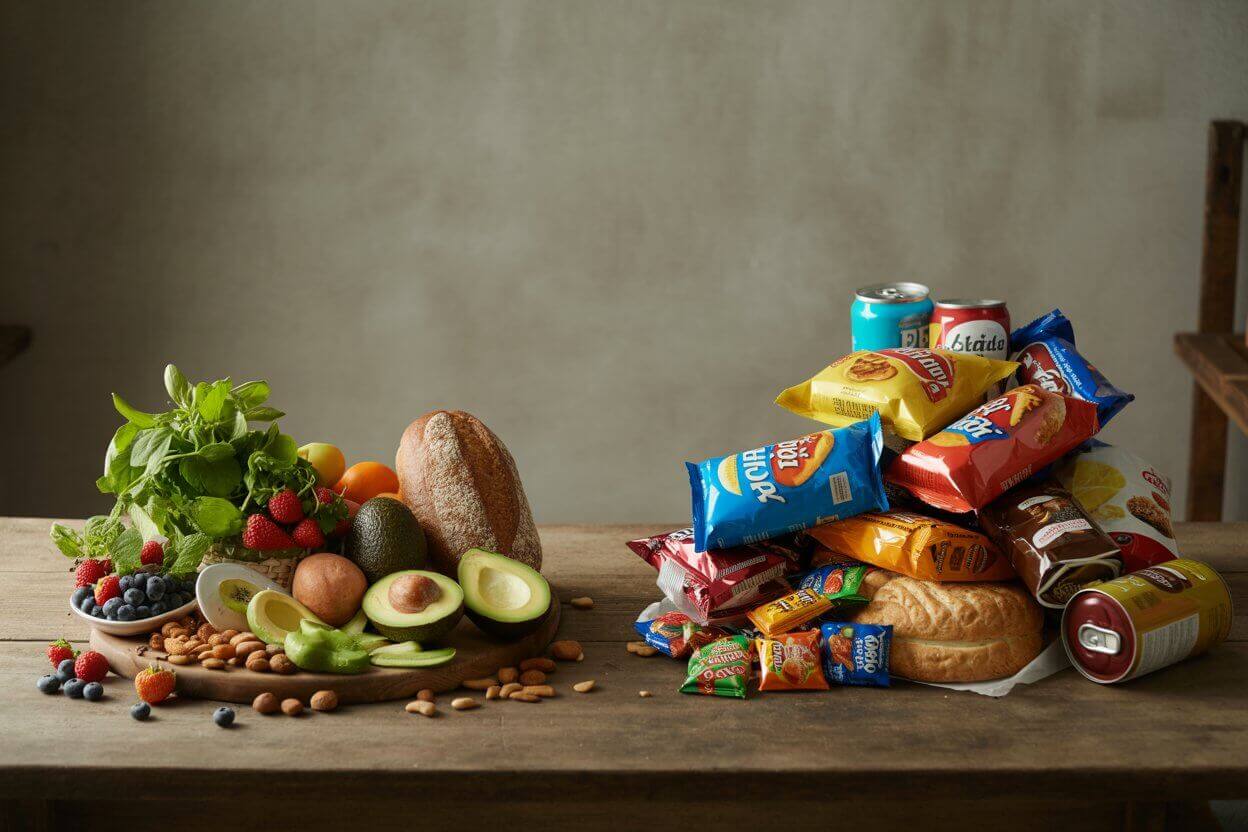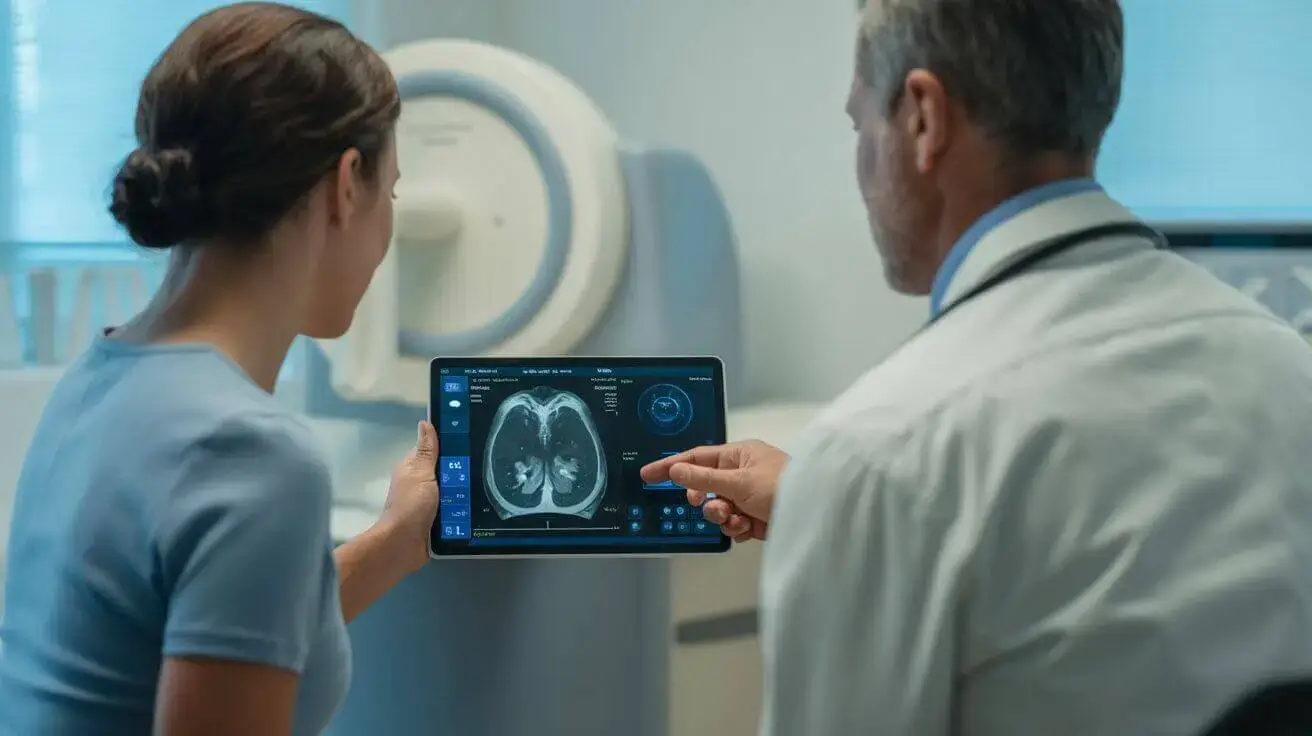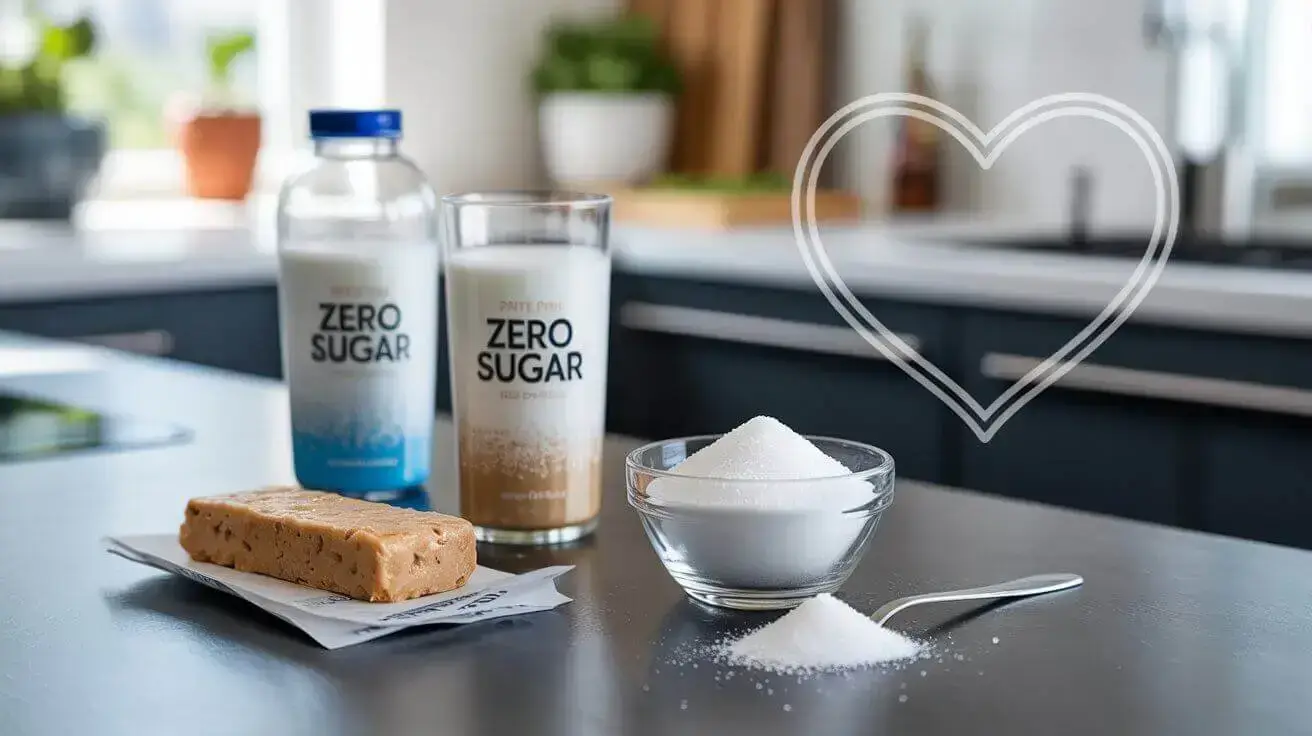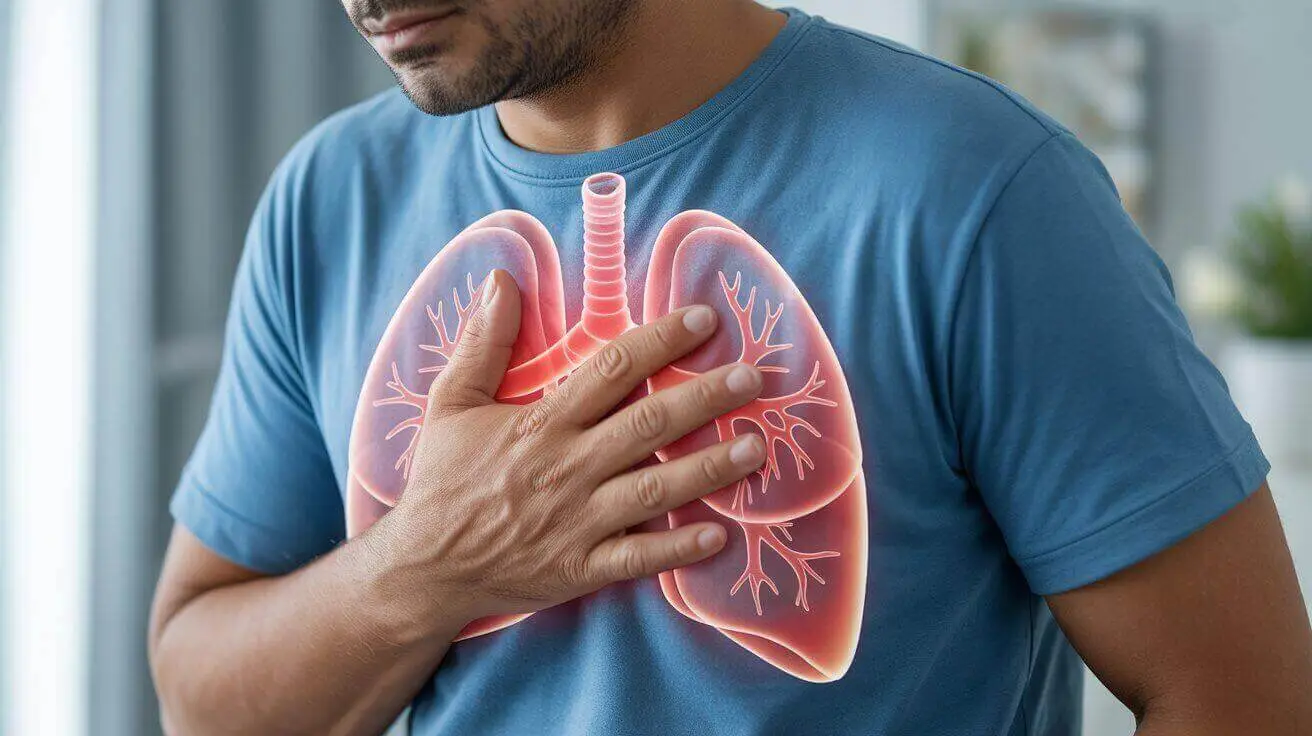It’s a challenge many of us face: trying to make healthy choices in a world filled with ultra-processed foods (UPFs). Think about your last trip to the grocery store, navigating the aisles under bright fluorescent lights. You grab whole-wheat bread, a carton of yogurt, a pre-packaged salad for a quick lunch, and maybe a protein bar for that afternoon slump. You’re trying to do the right thing, but a nagging question arises: are these convenient foods helping or harming your health? This confusion is central to understanding the impact of UPFs on our well-being.
What Are Ultra-Processed Foods, Really?
For years, the advice was simple: avoid processed foods. But what does that truly mean? Not all processed foods are created equal. A can of chickpeas is processed, yet it’s a healthy staple. A frozen pizza, however, falls into a different category entirely. This is where the term “ultra-processed” becomes crucial. Think of it this way: processing is what’s done to a food (like canning or freezing), while ultra-processing is what’s done with a food. UPFs are industrial formulations, typically made from substances extracted from foods (like fats, starches, and sugars) and blended with additives like artificial flavors, colors, and emulsifiers. They are designed to be cheap, convenient, and hyper-palatable—meaning, so tasty you can’t stop eating them.
The Health Risks of an Ultra-Processed Diet
The concern, backed by growing scientific evidence, is the strong link between a high intake of UPFs and negative health outcomes. Studies have repeatedly connected these foods to an increased risk of serious conditions, including:
- Obesity and weight gain
- Type 2 diabetes
- Heart disease
- Certain types of cancer
The problem isn’t just a single ingredient like sugar or fat. It’s the entire package: the lack of fiber and nutrients, the displacement of whole foods from the diet, and the complex additives whose long-term effects are still being studied. These products are engineered to bypass our natural feelings of fullness, encouraging overconsumption and contributing to a cycle of poor health.
- Also read: Is lemon water really a health miracle—or just hype?
Discover what science actually says in Lemon Water Benefits: What Science Really Says.
How to Avoid Processed Foods: 4 Practical Steps
So, how can you spot these items and make better choices without feeling overwhelmed? The key is not to aim for perfection, but for progress. Here are four practical steps to reduce your reliance on ultra-processed foods, inspired by guidance from the American Heart Association.
1. Read the Ingredients, Not Just the Marketing
The front of the package is marketing. The back is information. Look at the ingredients list. If it’s long, full of names you can’t pronounce (like maltodextrin, high-fructose corn syrup, or sodium erythorbate), and includes things you wouldn’t use in your own kitchen, it’s likely ultra-processed.
2. Embrace Minimally Processed Convenience
You don’t have to cook everything from scratch. Canned beans (rinsed to reduce sodium), frozen fruits and vegetables, plain yogurt, and canned fish are all examples of minimally processed foods that offer incredible convenience and nutritional value. They make healthy eating realistic on busy days.
3. Focus on Addition, Not Just Subtraction
Instead of only thinking about what to cut out, focus on what to add in. Challenge yourself to add one more whole food to every meal. A handful of spinach in your eggs, an apple with your lunch, or a side of roasted vegetables with dinner. This naturally “crowds out” the space for less healthy options.
4. Rethink Your Snacks for Better Health
Snacking is a major source of UPFs. Swap out the chips, cookies, and sweetened yogurts for whole-food alternatives. A handful of nuts, a piece of fruit, a hard-boiled egg, or some carrots with hummus are all satisfying, nutrient-dense options that support your health goals.
Your Path to Making Healthier Food Choices
Navigating the modern food environment is challenging, and it’s easy to feel discouraged. But remember, every small choice is a step in the right direction. It’s not about eliminating every last processed item from your life, but about shifting the balance away from ultra-processed foods and in favor of whole, nourishing ones. By learning to identify these products and making conscious swaps, you are taking a powerful step toward protecting your long-term health, one grocery cart at a time.
Medical Disclaimer: This content is for educational purposes only and does not replace professional medical advice, diagnosis, or treatment. Always consult your physician or a qualified healthcare provider with any questions about a medical condition.
Source & Further Reading
- American Heart Association Scientific Statement: “Ultra-Processed Foods and Cardiovascular Diseases.” Circulation. 2024. Available at:https://www.ahajournals.org/doi/10.1161/CIR.0000000000001365










